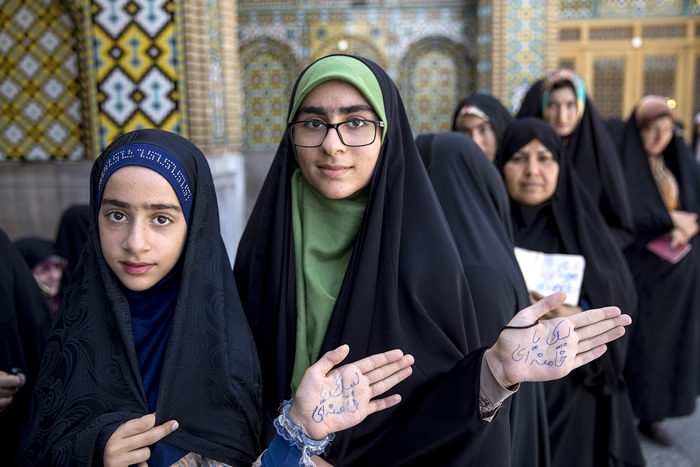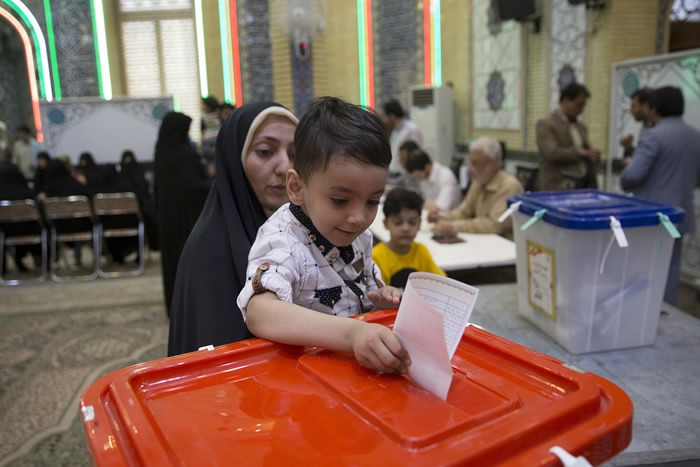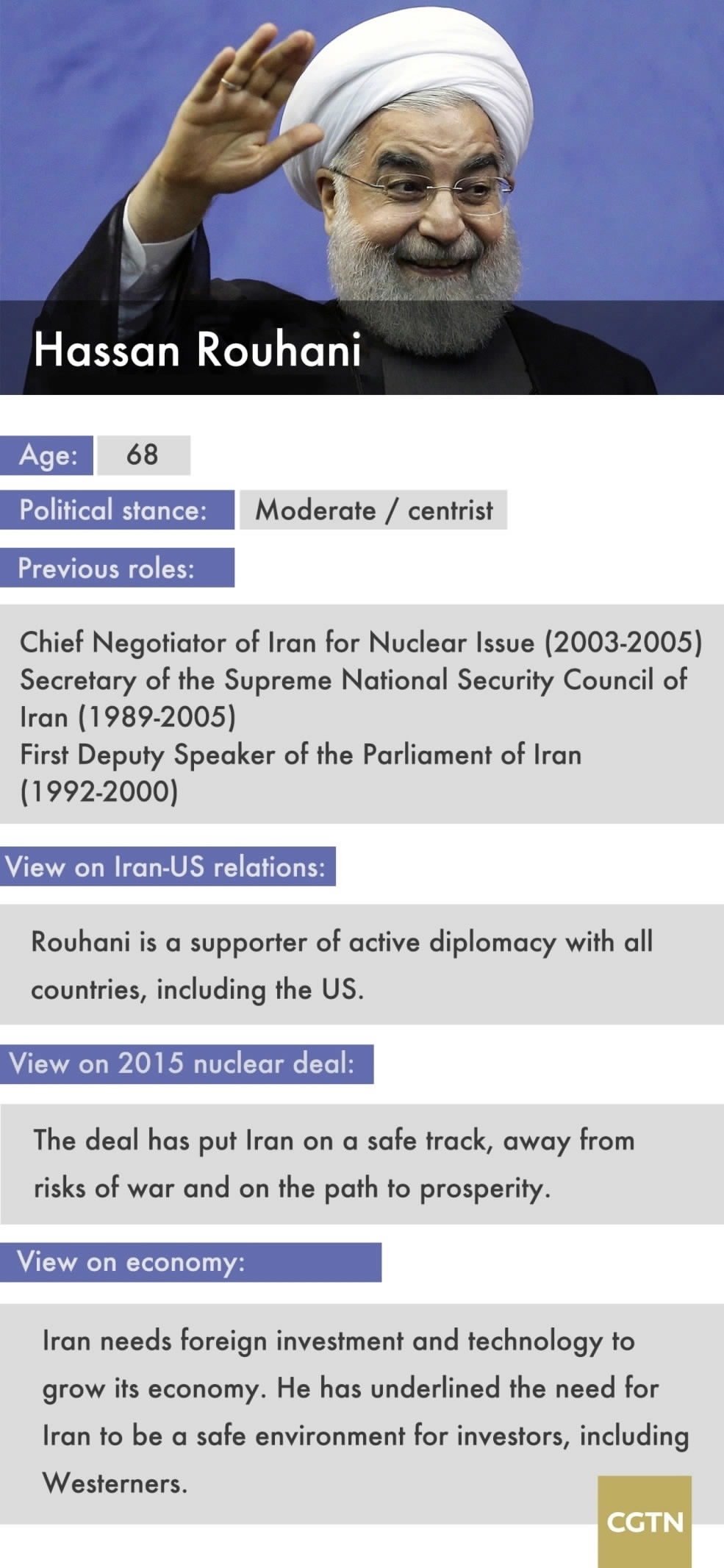With the re-election of incumbent President Hassan Rouhani, Iran may shift its strategic focus eastward to embrace China's Belt and Road Initiative and the Shanghai Cooperation Organization (SCO), in an effort to balance pressure from the United States, Saudi Arabia and Israel, analysts said.
Rouhani, a 68-year-old moderate and reformist who oversaw Iran's nuclear deal with world powers in 2015, beat his hardline rival Ebrahim Raisi in a landslide victory on Friday. According to figures released by Iran's Interior Ministry on Saturday, Rouhani won 23.5 million votes – a big increase from the 18.5 million votes he received four years ago. About 40 million votes were cast out of more than 56 million eligible voters.

Iranians vote in the presidential election in the city of Qom, south of the capital Tehran, Iran on May 19, 2017. /VCG Photo
Coinciding with Iran's presidential election, US President Donald Trump arrived in the country's regional rival Saudi Arabia on Saturday, kicking off his first overseas visit after assuming office in January. It is portrayed by the Iranian media as an "anti-Iran visit."
Trump has taken a hostile attitude toward Iran and has imposed new sanctions over its missile program, despite sticking by the nuclear deal; meanwhile, the US is consolidating its ties with regional allies Saudi Arabia and Israel – two major foes of Tehran in the Middle East.
Although Iran will likely continue to improve relations with Washington after the election, the country, facing military pressure from its west and complicated situations in the Middle East, is very likely to shift its strategic focus eastward, said Sun Degang, deputy director of the Middle East Studies Institute of China's Shanghai International Studies University.

Iranians vote in the presidential election in the city of Qom, south of the capital Tehran, Iran on May 19, 2017. /VCG Photo
In an interview with the overseas edition of the People's Daily, Sun said Iran could maintain a certain level of economic and trade cooperation with India, Japan and South Korea, and participate in the Belt and Road Initiative proposed by China.
In terms of political cooperation, Iran may strive to join the SCO in order to balance pressure from its west, Sun added.
Created in 2001, the SCO currently comprises six member states, namely Kazakhstan, China, Kyrgyzstan, Russia, Tajikistan and Uzbekistan, with India and Pakistan set to gain full membership next month.
Iran, an observer state of the SCO, is applying to become a full member. Its admission is backed by Russia but opposed by Tajikistan.

CGTN Graphic
Mohsen Shariati Nia, an expert on Chinese studies at Iran's Shahid Beheshti University, expressed similar views in an interview with Chinese magazine Caijing. As the US is unlikely to lift all sanctions on Iran and thus European countries are reluctant to invest in the country, Iranians have reached a consensus that they should get on "China's train," he revealed.
The Belt and Road Initiative has provided Iran great development opportunities, the Caijing report stressed.
The Iranian presidential election takes place every four years and presidents can only serve two terms. Every Iranian president since 1981 has won re-election.









